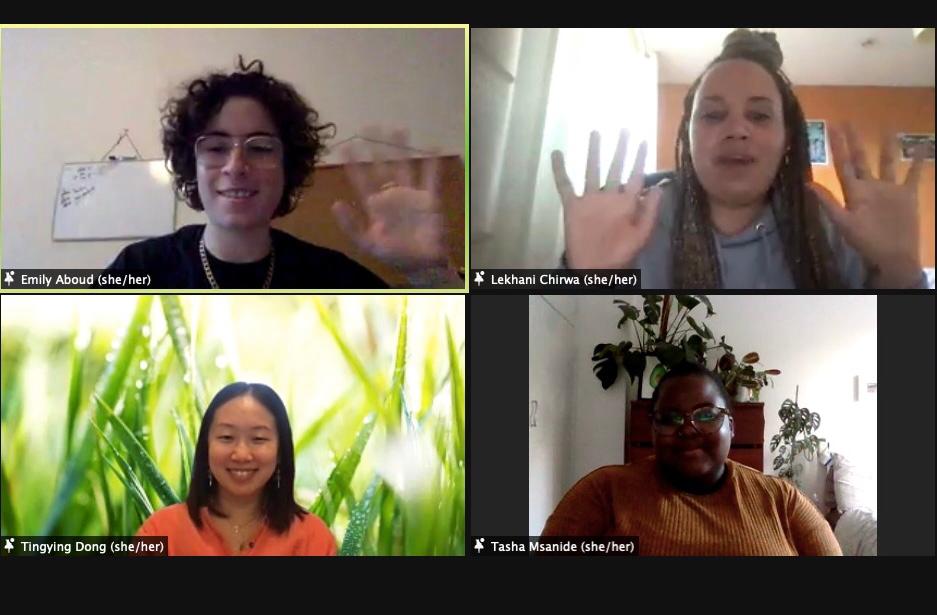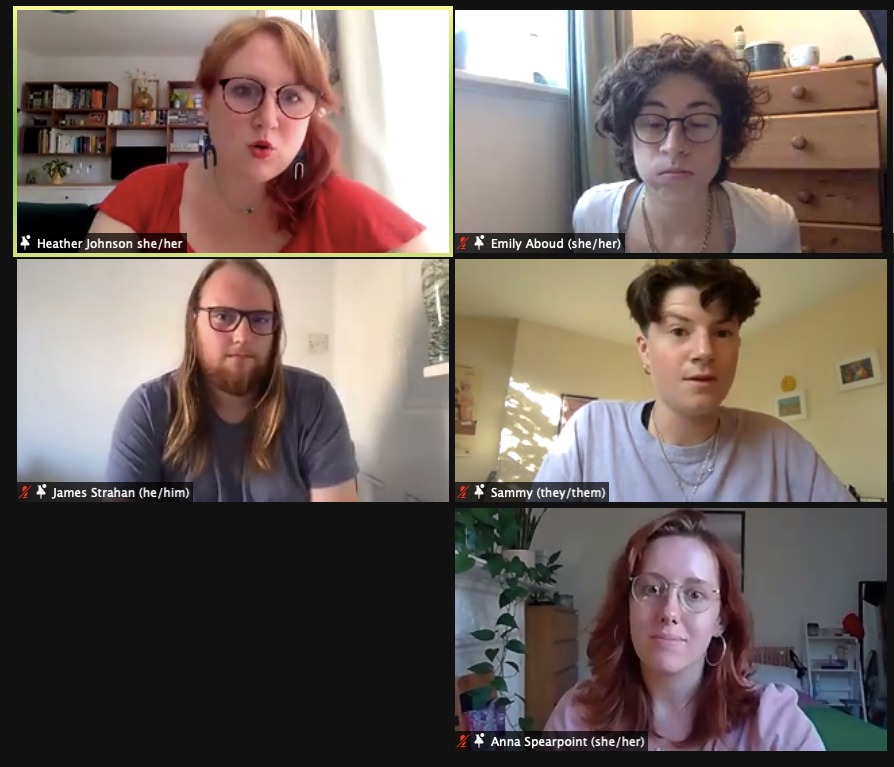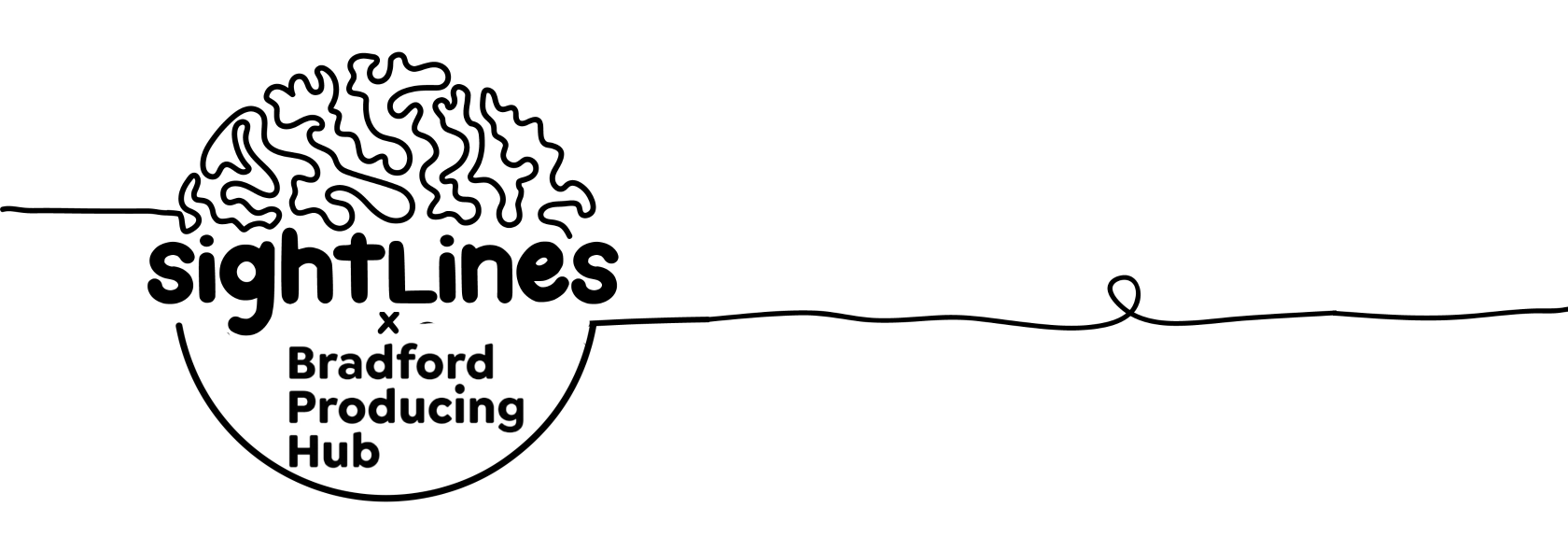It’s not news to point out that our social fabric has been disrupted by the Covid-19 pandemic. Its associated lockdowns have had negative impacts on health and wellbeing. Almost all venues were shut. Rehearsals, teaching and other forms of artistic engagement either had to cease completely or move online. Thousands of performers and backstage workers were laid off and left uncertain about their future employment in an already unpredictable and unstable biz. Even before this time, mental health problems were pervasive in the performing arts community. The rates of suicide, sleep disturbance, high levels of drug and alcohol use, anxiety and depression are well evidenced.
Sightlines is a wonderful new festival designed to explore the challenges of/in this industry, and what we can do to bring positive change.
 Navigating White Spaces Panel
Navigating White Spaces Panel
The importance of learning and developing new skills is a crucial element of keeping mentally well. Conrad Murray of BAC Beatbox Academy delivered an eye-opening and fantastic first workshop into the world of beatboxing. Conrad taught virgin beatboxers to make music using nothing but their mouths, with patience and empathy. The group had a broad age range and it was great to hear how beatboxing can help kids and big kids alike. Giving to others and helping others can be the secret spice for a great wellbeing recipe. All the workshop facilitators, panelists, and artists in the Festival (from the week I’ve witnessed so far) understood the importance of this. The panel discussion Navigating White Spaces, hosted by Emily Aboud, discussed the importance of giving, and giving in different forms e.g. opportunities, financial grants, equipment needs, etc. Emily led a fascinating, constructive conversation on why the representation of individuals from the global majority is important, how success is defined, and barriers in the industry. The panelists analyzed the importance of having role models who can empower people from similar backgrounds and having the right mentors that can guide you through the process. They stressed the importance of not being afraid to open up and taking care of your mental health, among many other eye-opening topics.
Another panel discussion, Adapting Performance Engagement to Zoom, hosted by Emily Orme, brought together performance makers and facilitators to share their experience and perspective on the importance of the arts including beatboxing, theatre, and dance in people’s lives, across age groups and underprivileged groups, as well as the role of arts on wellbeing and mental health. They highlighted the importance of creating an engaging environment and building connection and confidence. In such environments, during times of pandemic and uncertainty, individuals have access to co-exist, self-develop, and co-create through online platforms (e.g., Zoom). The panelists highlighted the barriers that arise by transferring themselves online. They discussed what the future holds, such as more hybrid communication and the need for physical connection.
In Theater of the Oppressed, Hanu Sneyd interviewed Birgit Fritz about Theater of the Oppressed, a worldwide movement encouraging humanisation and empowerment through emancipatory theatre. Theater of the Oppressed is a place of transformation and communication. The use of theatre to research our reality, where people reinvent themselves, is a method that doesn’t accept answers but asks questions. It is an ongoing experiment, moving from monologue to dialogue. Hanu, through a quick workshop, demonstrated techniques to feel liberated from the chains of the past and the future and taught us how to be and feel present, leaving behind our busy life and mind, and how we may incorporate such techniques in theatre. Taking notice, becoming more mindful, is an important technique in reducing stress, anxiety, depressive symptoms, fatigue, and so on. This workshop by Hanu was an amazing first experience for someone like me to try something different and unique and see its power.
 Neurodiversity and Performance Panel
Neurodiversity and Performance Panel
Thursday night finished with the best way, with the Men on the Mind show. A stunning Zoom gig and private drag night with the best kings on the circuit, led by Aboud’s alter ego TriniDad & TooGayThough. It was an incredible show through the prism of gender as a social rigid structure, while presenting in a beautiful way what oppresses us. They invited us to experience a magnificent rollercoaster and amalgam of different contradicting but complementary emotions, and entertain us during these difficult times. Aboud returned a third time on Friday evening, as a guest on the Neurodiversity and Performance panel discussion, an often hilarious, always insightful panel led excellently by Heather Johnson. Seeing artists like Aboud and Murray and Lekhani Chirwa return multiple times wearing “different hats” in the Festival gave a real sense of wholeness to the proceedings.
These shows and panels reminded performers (and non-performers, too) to let our guards down, to get out of our comfort zone and be open to interrogating our own limiting beliefs. The importance to maintain social connection and build quality relationships, to develop new skills and learn from other people’s experiences. To share and challenge ideas, the importance of a healthy work-life balance, how to practice self-care and self-awareness, how to properly give support to others, and much more. Sightlines can help us to see life more positively, to co-create, and to self-develop together. How sharing our experience, and our wellbeing and mental health life journey, can be a huge benefit.





